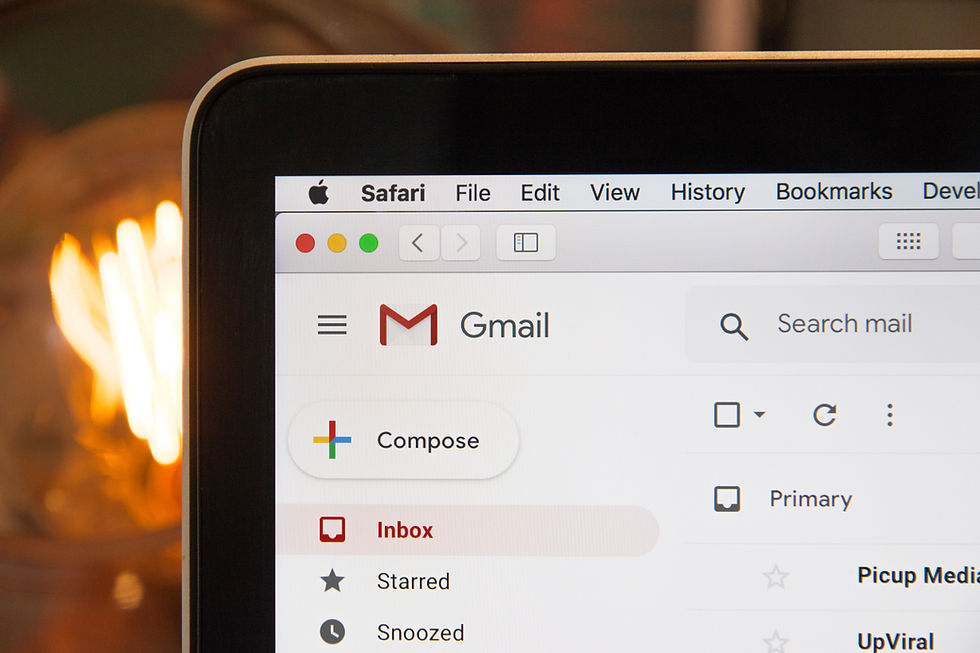With so many social media platforms out there, it is sometimes hard to figure out which one is best to use and for what purpose. Each platform has its own strengths, audiences, and types of content that perform best, making it crucial to tailor your strategy accordingly. As we dive into the digital age, mastering these channels becomes essential for a successful year-end fundraising campaign. This part of our 7-part series will guide you through effectively leveraging various digital platforms to engage your audience, tell your story, and maximize donations.
Table of Content

Understanding your audience is key to choosing the right platforms and crafting the most impactful messages. This is where creating donor avatars comes in. Donor avatars are detailed profiles that represent segments of your donor base. They help you understand where your donors spend their time online, what type of content resonates with them, and how they prefer to be engaged. By knowing your donor avatars, you can strategically choose the digital channels that will be most effective for your fundraising campaign.

To maximize your impact on these platforms, it’s essential to include links to your donation landing page in all your content. Clear calls-to-action (CTAs) are critical in guiding your audience to take the next step. Additionally, using signature hashtags for your campaign and SEO-optimized hashtags will enhance your visibility and reach on social media. Let’s explore each platform in detail, the type of content that works best, and how to optimize your efforts for the greatest impact.

Content Type: Stories, updates, event promotions, and donor recognition
Content Length: Short posts (1-2 paragraphs), videos (1-2 minutes)
Production
Quality: Mix of lightly produced (live updates) and heavily produced (impact videos)
When to Post: Morning and early evening (8-9 AM and 5-7 PM)
Tips: Use Facebook Live for real-time engagement and Q&A sessions. Share compelling stories and regular updates about your campaign progress. Create event pages for fundraising events and promote them to your followers. Utilize Facebook ads to reach a wider audience. Always include a link to your donation landing page and use signature hashtags to increase engagement.

Content Type: Stories, photos, short videos, reels, IGTV
Content Length: Posts (1-2 paragraphs), reels (15-30 seconds), IGTV videos (1-10 minutes)
Production Quality: Mix of lightly produced (stories) and heavily produced (reels, IGTV)
When to Post: Afternoon and evening (12-1 PM and 7-9 PM)
Tips: Use high-quality images and videos to capture attention. Leverage Instagram Stories for behind-the-scenes looks and quick updates. Reels are great for short, engaging content that can go viral. Use IGTV for longer-form content like interviews or detailed stories about your impact. Don’t forget to add donation links in your bio and story highlights, and use SEO-optimized hashtags to broaden your reach.
YouTube

Content Type: Impact stories, interviews, how-to videos, campaign updates
Content Length: 5-10 minutes
Production Quality: Heavily produced for professionalism
When to Post: Afternoon and evening (12-3 PM and 7-9 PM)
Tips: Create a series of videos that tell your organization’s story, feature beneficiaries, and show the impact of donations. Use engaging thumbnails and titles to attract viewers. Include clear calls to action in your videos. Promote your videos through your other social media channels and email newsletters. Always include links to your donation page in video descriptions and use relevant hashtags to enhance discoverability.
TikTok

Content Type: Short, engaging videos, behind-the-scenes, challenges
Content Length: 15-60 seconds
Production Quality: Lightly produced, authentic content
When to Post: Morning, afternoon, and late night (7-9 AM, 12-3 PM, 8-11 PM)
Tips: Use trends and challenges to increase visibility. Keep content fun, engaging, and authentic. Collaborate with influencers to reach a broader audience. Use TikTok's editing tools to add music, effects, and text overlays. Ensure your videos include calls to action and links to your donation page in your bio. Utilize campaign-specific and SEO-optimized hashtags for maximum reach.
X (formerly Twitter)

Content Type: Updates, stories, campaign highlights, donor recognition
Content Length: Short posts (1-2 sentences), videos (up to 2 minutes)
Production Quality: Mix of lightly produced (tweets) and moderately produced (videos)
When to Post: Morning and late afternoon (8-10 AM and 5-6 PM)
Tips: Use hashtags to increase reach. Tweet regularly to keep your audience engaged. Share links to your donation page and other relevant content. Use Twitter threads to tell longer stories or provide detailed updates. Include SEO-optimized hashtags to enhance discoverability and create a unique campaign hashtag to track engagement.

Content Type: Newsletters, updates, personal stories, calls to action
Content Length: Medium to long (3-5 paragraphs)
Production Quality: Moderately produced with professional formatting
When to Send: Midweek mornings (Tuesday to Thursday, 9-11 AM)
Tips: Personalize emails to make recipients feel valued. Include compelling subject lines to increase open rates. Use a mix of text, images, and links to make emails engaging. Segment your email list to send targeted messages to different donor groups. Always include a link to your donation page and a clear call to action.
Blog

Content Type: In-depth stories, campaign updates, donor spotlights, impact reports
Content Length: Long-form (600-1,200 words)
Production Quality: Well-written and professionally formatted
When to Post: Early in the week (Monday to Wednesday)
Tips: Use storytelling techniques to engage readers. Incorporate quotes, images, and data to support your narrative. Optimize posts for SEO to increase visibility. Share blog posts on social media and in email newsletters to drive traffic. Include links to your donation page and use SEO-optimized keywords throughout the content.
Newsletter

Content Type: Monthly updates, highlights, upcoming events, donor recognition
Content Length: Medium (3-5 paragraphs)
Production Quality: Moderately produced with professional design
When to Send: Beginning of the month (first Tuesday or Wednesday)
Tips: Keep the layout clean and easy to read. Highlight key achievements and upcoming events. Include links to your donation page and social media channels. Personalize content based on subscriber preferences. Use engaging subject lines to increase open rates.
Digital Magazine
Content Type: In-depth articles, interviews, impact stories, donor features
Content Length: Long-form (1,200-2,000 words)
Production Quality: Highly produced with professional design and visuals
When to Publish: Quarterly or biannually
Tips: Use a professional design tool to create visually appealing layouts. Include interactive elements like videos and links. Highlight major accomplishments and feature stories from beneficiaries and donors. Include links to your donation page and share the digital magazine across your digital channels.
Case Studies
Content Type: Detailed analysis of successful projects or programs
Content Length: Long-form (1,200-2,000 words)
Production Quality: Highly produced with professional formatting and visuals
When to Release: As part of a campaign launch or major update
Tips: Use real data and quotes to support your case. Include visuals like charts and infographics. Share these case studies on your website, social media, and email newsletters to showcase your impact. Include links to your donation page and optimize for SEO.
Slideshows / Presentations
Content Type: Campaign summaries, impact reports, project updates
Content Length: 10-15 slides
Production Quality: Highly produced with professional design
When to Present: During webinars, virtual events, or donor meetings
Tips: Use a consistent design template. Include key points on each slide with supporting visuals. Practice your presentation to ensure smooth delivery. Share the slides with attendees afterward for reference. Include links to your donation page and use engaging visuals to maintain interest.
Live Streams
Content Type: Real-time updates, Q&A sessions, virtual events
Content Length: 30-60 minutes
Production Quality: Lightly to moderately produced
When to Stream: Evening or weekends (6-8 PM)
Tips: Promote the live stream in advance to increase attendance. Use interactive features like live chat to engage viewers. Record the session to share later. Feature key staff members, beneficiaries, and donors to provide diverse perspectives. Always include a clear call to action and links to your donation page.
Virtual Reality Experiences
Content Type: Immersive tours, interactive stories, virtual events
Content Length: 5-10 minutes
Production Quality: Highly produced with professional VR tools
When to Release: During major campaign launches or special events
Tips: Use high-quality VR tools to create immersive experiences. Promote the VR experience on all your digital channels. Provide easy access instructions for users. Use VR to showcase your facilities, events, or the communities you serve. Include a call to action and links to your donation page in the VR experience.
Leveraging digital channels effectively can transform your year-end fundraising campaign. Each platform offers unique opportunities to engage your audience, tell your story, and drive donations. By understanding the strengths of each channel and creating tailored content, you can maximize your reach and impact. Whether it’s a heartfelt video on YouTube, a compelling story on Instagram, or an immersive VR experience, the right digital strategy can make all the difference.
We can help you develop and refine your digital strategy to ensure it resonates with your audience and maximizes your impact. Visit Impctrs Management Groupat www.impctrsmgmtgroup.com for more tips and resources. Don’t forget to like and comment on this post and sign up for our email list to stay updated with the latest strategies for successful fundraising.
Are you ready to get started on your Year-End Fundraising Plan?
Download the spreadsheet you and your team can start using today.
For more tips and resources, stay tuned for the next installment in our 7-part series on getting ready for year-end fundraising. Visit Impctrs Management Group at www.impctrsmgmtgroup.com for additional support and insights for developing and implementing your best Year-End Fundraising Plan to date. Don’t forget to like and comment on this post and sign up for our email list to stay updated with the latest strategies for successful fundraising.

Comments